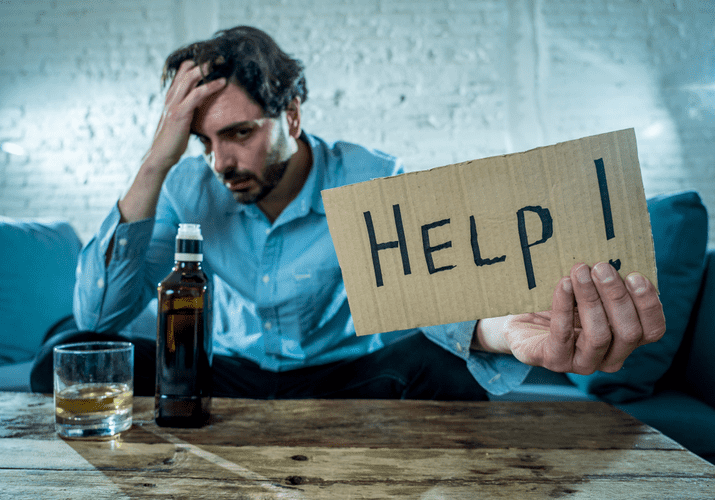Insomnia, the most common sleep disorder, is marked by periods of difficulty falling or staying asleep. Insomnia occurs despite the opportunity and desire to sleep, and leads to excessive daytime sleepiness and other negative effects. And that’s the last thing you need when you’re about to lose an hour of sleep. Because we spring forward during daylight saving time, we effectively “lose” an hour of precious morning daylight.
Alcohol acts on your nervous system and causes brain activity to slow down. So you might find that drinking alcohol helps you to unwind and fall asleep more quickly. Moderate and heavy drinkers consistently have poor sleep quality and more sleep disturbances over time. Studies show a direct link between alcohol consumption and OSA, since drinking alcohol causes throat muscles to relax.
It Interferes With Your Circadian Rhythm
Cortisol rhythms show no evidence for disruption early in withdrawal or two to
four weeks post drinking in two studies (Mukai et al.
1998; Fonzi et al. 1994). However, those
with delirium tremens did have altered rhythms (Mukai et al.
1998; Fonzi et al. 1994). Kuhlwein, Hauger and Irwin (2003) reported lower cortisol early in
the night and higher levels later in the night in their African American alcoholics after
two weeks. Over time, poor quality sleep can have a negative influence on many different aspects of your life, including your long-term health.
First, alcohol affects everyone differently because of a slew of factors, like age, biological sex, and body composition, just to name a few. If you pass the moderate threshold, though, you’ll get a lot more of that initial non-REM sleep, but significantly reduce the total percentage of REM sleep over the whole night. Myrkl is scientifically crafted to help people who want to feel their best the morning after celebrating. The compensation we receive from advertisers does not does alcohol help you sleep influence the recommendations or advice our editorial team provides in our articles or otherwise impact any of the editorial content on Forbes Health. Based on your answers, we will calculate your free
Sleep Foundation Score
™
and create a personalized sleep profile that includes sleep-improving products and education curated just
for you. The Sleep Foundation editorial team is dedicated to providing content that meets the highest standards for accuracy and objectivity.
What Happens When You Drink Alcohol Right Before Bed?
Individuals who have attention deficit hyperactivity disorder (ADHD) are also particularly affected by insomnia. A 2020 study found that people with ADHD are more likely to consume alcohol to treat their insomnia symptoms. 2020 research suggests that alcohol impacts the part of sleep known as rapid eye movement (REM).
The Impact of Alcohol on Sleep: Why It’s Not a Good Idea to Rely on Alcohol as a Sleep Aid – Everyday Health
The Impact of Alcohol on Sleep: Why It’s Not a Good Idea to Rely on Alcohol as a Sleep Aid.
Posted: Wed, 13 Sep 2023 07:00:00 GMT [source]
Studies have shown the body is more effective at processing alcohol at certain times of the day than others. The liver acts as a filtering system for the body, helping metabolize food and chemicals (including alcohol itself), and pulling toxins from the https://ecosoberhouse.com/ bloodstream. Like nearly all of the body’s organs, the liver functions according to circadian rhythms. Alcohol interferes with these circadian rhythms regulating the liver, and can contribute to compromised liver function, liver toxicity, and disease.
Drinking Water Before Bed
Alcohol is a central nervous system depressant that causes brain activity to slow down. Alcohol has sedative effects that can induce feelings of relaxation and sleepiness, but the consumption of alcohol — especially in excess — has been linked to poor sleep quality and duration. People with alcohol use disorders commonly experience insomnia symptoms.

It also leads to lighter, more restless sleep as the night wears on, diminished sleep quality, and next-day fatigue. You can manage the negative effects of alcohol on sleep by giving your body ample time to metabolize alcohol before falling asleep. To reduce the risk of sleep disruptions, you should stop drinking alcohol at least four hours before bedtime.
Drinking Alcohol Before Bed Is Ruining Your Sleep Quality, According to a Neuroscientist and a Neurologist
For example, a study in mice found that 72 hours of sleep deprivation resulted in weight loss, anxiety-like behavior, and oxidative damage (59). Cherries’ tryptophan content is believed to be one reason these fruits aid sleep. Tryptophan is an amino acid that’s a precursor to the hormone melatonin, which helps regulate when you fall asleep and wake up (5, 6, 7, 8). They’re not only known for making a great pie filling but also a number of health benefits, including improved sleep quality (3, 4). When your sleep is disrupted, it can affect the hormones and brain signals which are normally released during sleep. Your deep restful sleep tends to be more prevalent in the first few hours but decreases during the second half.

